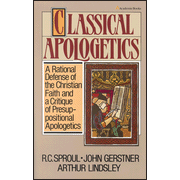We have shown that infant baptism leads to religious persecutions
Thus we have shown incontrovertibly that infant baptism leads to religious persecutions. It necessarily makes an ignorant and worldly church, which if it has the power will persecute; it unites the church with the state, and every such church has been and is guilty of religious persecutions; the source from which infant baptism mainly draws the arguments for its support leads the church to acts of persecution; and history shows that all Pedobaptist churches having the power have engaged in persecution, and that their persecutions have been always most violent and bitter against Baptists, principally because we deny, and refuse to practice, infant baptism. The world has never been visited by a more dreadful evil than religious persecutions. No man can read the details of their enormities without shuddering. All feel the deepest disgust. I shall attempt here no description of them. But let it be remembered that persecution is one of the results of infant baptism.
The converse of this proposition is also true, Baptist principles are inimical to persecution. They, in their very nature, repel it in all its hateful forms. And when these principles shall spread themselves over the earth, and they ever have advanced, and ever will advance pari passu with political freedom, religious persecution shall be known no more among men.
It is not a little remarkable that historians, and others, have attributed the first true conceptions of religious liberty to Roger Williams, the Governor of Rhode Island. In this they all evince their total ignorance of Baptist history.
Of Williams Bancroft says:
“He was the first in modern Christendom, to assert in its plenitude, the doctrine of the liberty of conscience, the equality of opinions before the law, and in its defense he was the harbinger of Milton, and the precursor, and the superior of Jeremy Taylor.”[152]
I honor Roger Williams for his enlightened conceptions, and his bold action regarding religious liberty. But he was only the representative of all the Baptists who had gone before him, many of whom had written as wisely, as learnedly, and as conclusively as he. When, for example, Calvin had succeeded in bringing Servetus to the stake—one of the most horrid blasphemies alleged against whom, by the way, was his denial of infant baptism—a protest against the proceeding was published by a learned and pious Baptist minister, Mr. David Joris.
“It is,” said Joris, “an incredible blindness that the servants of Christ, who are sent to give life to the dead through the knowledge of the truth, should condemn the erring to death, and through temporal death expose their souls to eternal ruin. The fight to pass such a sentence belongs to Him alone who gave life, and suffered death for our redemption. Were it lawful to put heretics to death, there would be a general slaughter, since all religious parties regard their opponents as guilty of heresy.”[153]
In Calvin and Joris, you see Presbyterian and Baptist principles regarding religious liberty, in full contrast, long before the days of Roger Williams. Thomas Helwys was another example equally as striking as the Governor of Rhode Island. If the latter stated and defended in the new world, the doctrine of “soul liberty,” with great skill and force in his writings, and honorably illustrated it in the planting of a civil state where consciences, however diverse or eccentric, were never oppressed, the former gave in his publications, in the old world, full form and expression to the same sentiments, and maintained them with singular personal boldness, and magnanimity. Helwys was spurned from society, and driven into obscurity.
Williams was more fortunate. The small territory that he planted, scarcely noticeable upon the map of the great confederacy of states of which it now forms a part, furnished the example of religious freedom which that confederacy has copied, and which across this wide continent, the millions of our people now account “their highest honor.” This was, however, only the embodiment of the great Baptist principle which, from the apostles’ times, our churches have all maintained, and defended.
R. B. C. Howell- The Evils of Infant Baptism- Chapter 13- Infant Baptism is an Evil because it leads to religious persecutions












Recent Comments